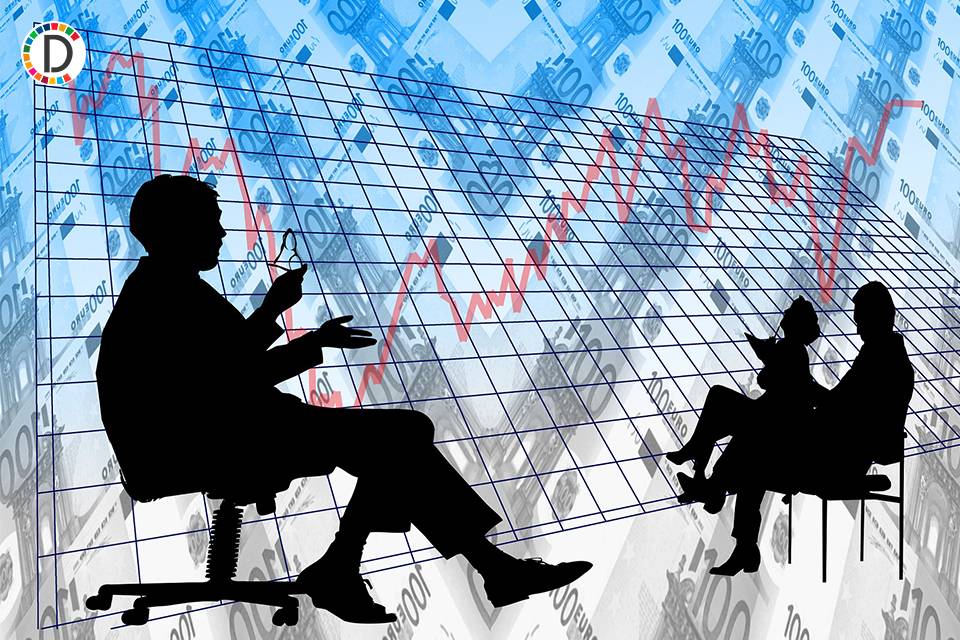Global shares up after Wall St's best quarter since 1998
Uncertainty is still the new normal as reported cases keep surging around the world while no cure or vaccine for COVID-19 is available. A quarterly Bank of Japan survey released Wednesday showed Japanese manufacturers' sentiment plunged to its lowest level in more than a decade, as the pandemic crushes exports and tourism, mainstays for the world's third largest economy.

- Country:
- Japan
Global shares were mostly higher Wednesday after Wall Street capped its best quarter since 1998, shrugging off continued signs of damage from the coronavirus pandemic. France's CAC 40 fell 0.2% in early trading to 4,925.53, while Germany's DAX gained nearly 0.7% at 12,391.72. Britain's FTSE 100 was a tad higher at 6,170.51. U.S. shares were set to drift lower with Dow futures down 0.2% at 25,631.0. S&P 500 futures were also lower at 3,084.88. down 0.2%.
Japan's benchmark Nikkei 225 slipped nearly 0.8% to finish at 22,121.73. South Korea's Kospi inched down nearly 0.1% to 22,121.73. Australia's S&P ASX 200 gained 0.6% to 5,934.40. The Shanghai Composite rose 1.4% to 3,025.98, while trading was closed in Hong Kong for a holiday. Markets have continued gaining despite the harsh toll the pandemic is inflicting on global economies. Uncertainty is still the new normal as reported cases keep surging around the world while no cure or vaccine for COVID-19 is available.
A quarterly Bank of Japan survey released Wednesday showed Japanese manufacturers' sentiment plunged to its lowest level in more than a decade, as the pandemic crushes exports and tourism, mainstays for the world's third largest economy. The headline measure for the "tankan," tracking sentiment among large manufacturers, fell to minus 34, the lowest since 2009, from minus 8 the previous quarter. The tankan measures corporate sentiment by subtracting the number of companies saying business conditions are negative from those responding they are positive.
A separate survey showed China's manufacturing activity improved in June, adding to signs of a gradual recovery from the country's deepest economic downturn since at least the mid-1960s. The monthly purchasing managers' index issued by a business magazine, Caixin, rose to 51.2 from May's 50.7 on a 100-point scale on which numbers above 50 indicate activity increasing. A sub-index for export orders rose to 47 from 41.7.
The Chinese economy has been recovering but only slowly since global demand for exports is weak and consumers and businesses inside China are wary of further outbreaks and other risks from the pandemic. The disconnect between the surging stock markets and the dire realities of economies slammed by the pandemic and social distancing restrictions suggests investors are counting on a recovery they only assume is on the way, said Hayaki Narita at Mizuho Bank in Singapore. Ample cash thanks to massive stimulus from central banks has helped fuel the rallies.
"In other words, equity market bulls, as defined by the overwhelming rebound from March troughs, are looking past the current economic gloom despite not being out of the woods, and being emboldened by the flood of ultra-cheap money," he said. The whiplash that ripped through markets in the second quarter came as investors looked beyond dire unemployment numbers and became increasingly hopeful that the economy can pull out of its severe, sudden recession relatively quickly.
The surge in confirmed new cases, which has prompted the European Union to bar U.S. travelers from entry, is seeding doubts that the economic recovery can happen as quickly as markets had forecast. That helps explain why the market's momentum cooled somewhat in June. Beyond the coronavirus, analysts also point to the upcoming U.S. elections and other risks that could upset markets. If Democrats sweep Congress and the White House, which many investors see as at least possible, it could mean higher tax rates, which could weaken corporate profits.
Benchmark U.S. crude gained 90 cents to $40.17 a barrel. It slid 43 cents to $39.27 a barrel on Tuesday, still nearly double where it was at the end of the first quarter. Brent crude rose 90 cents to $42.17 a barrel. The U.S. dollar fell to 107.50 Japanese yen from 107.93 yen. The euro inched up to USD 1.1239 from USD 1.1236.
(This story has not been edited by Devdiscourse staff and is auto-generated from a syndicated feed.)
ALSO READ
Microsoft and NetEase to re-launch Warcraft game in China, ending feud
US considers easing warnings for Americans traveling to China
Canadian espionage agency claims China interfered with last two elections won by Trudeau
Philippines president says trilateral summit with U.S., Japan to include South China Sea cooperation
China says US comments on Taiwan and AUKUS are dangerous










